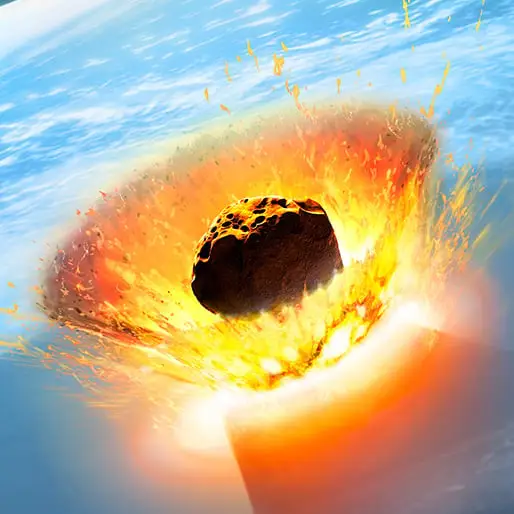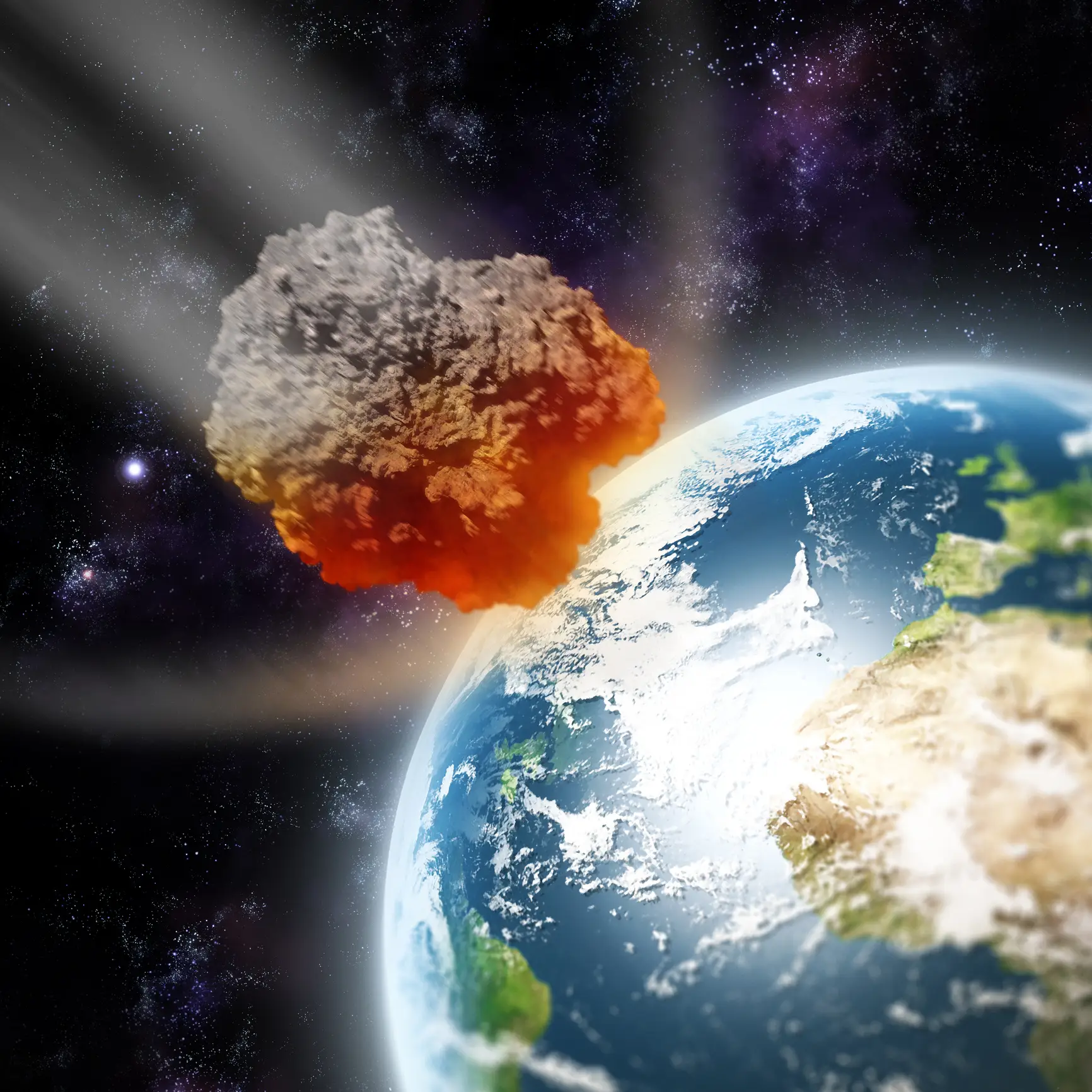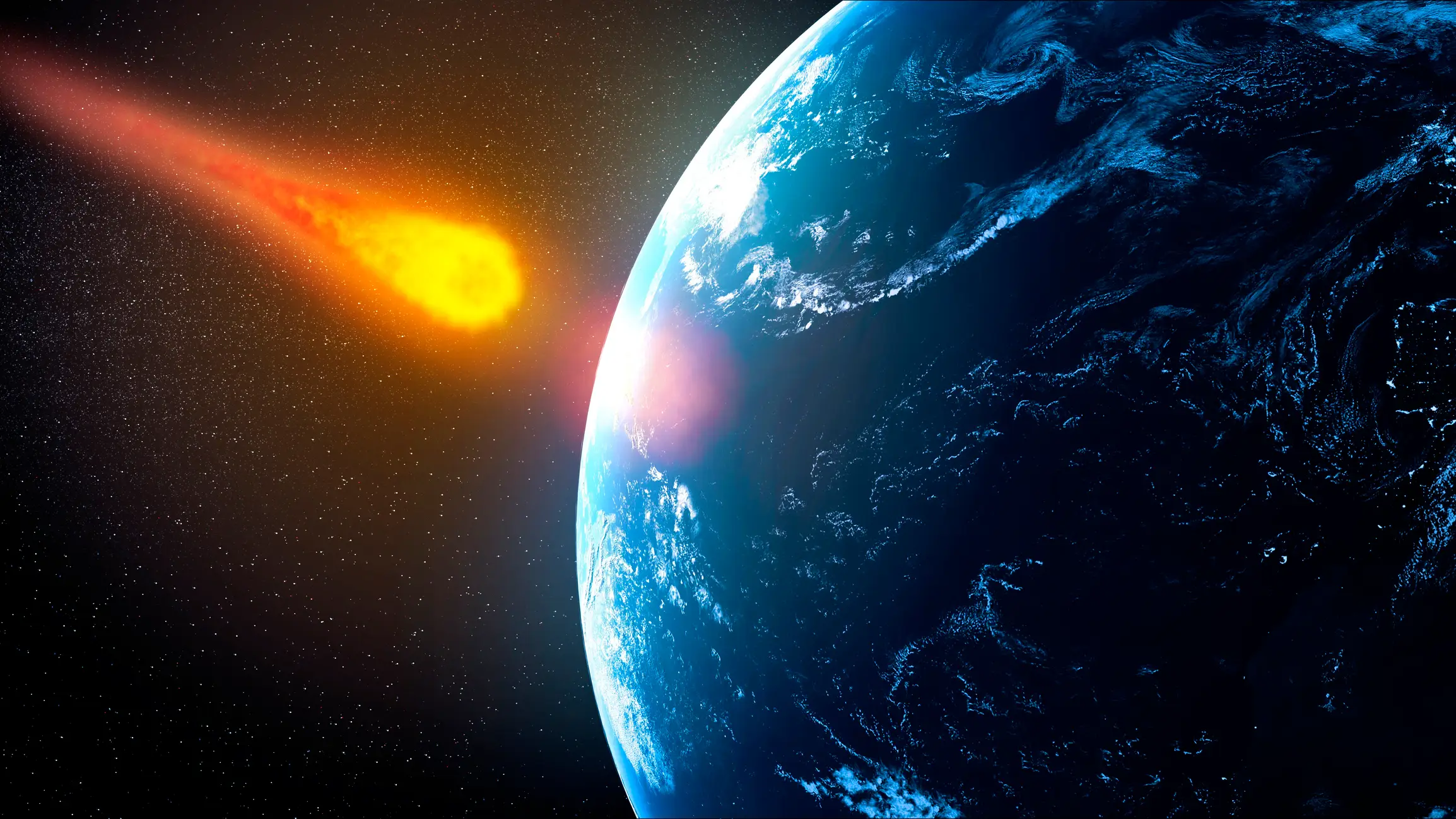
A simulation has revealed what would happen if a ‘God of Chaos’ asteroid hit Earth.
The simulated clip has left people terrified and convinced that a collision could be imminent.
The video depicts an asteroid called 99942 Apophis - which has also been dubbed as the ‘God of Chaos’.
Advert
It’s peanut shaped and measures at a huge 340 meters wide.
It’s expected to pass by Earth in 2029, traveling within 20,000 miles of our planet.
It’s estimated that it’ll pass over the Atlantic Ocean, going so fast that it’ll take less than an hour to go past.
The asteroid isn’t actually expected to collide with Earth, however, a study has uncovered that if it comes into contact with another object, this could change its path and push it in line with us.
Canadian astronomer Paul Wiegert and co-author Benjamin Hyatt revealed that the object would only need to be 0.6 meters in length to push the asteroid off its course.
Still, this is very unlikely to happen.
But what would happen if the asteroid did end up colliding with our planet? How bad would it be?
What happens if the asteroid hits Earth?
Well, according to digital platform Cosmoknowledge, although Apophis wouldn't be ‘a planet killer’ it ‘would ruin our day if it made contact’.

A simulation showed that it would impact the planet with a kinetic energy equivalent to '1,000 mega tonnes of TNT, or tens to hundreds of nuclear weapons'.
It would not cause a threat to humanity as a whole, but it would cause 'billions' of deaths, as well as severe climate disruption.
"We would have to get out of the way if we could not stop it or change its trajectory," they explain.
"A project of that magnitude would necessitate global cooperation as millions of people would become the first space refugees.
"Depending on the size, density, speed and angle of approach of the asteroid, such an evacuation may not be possible."
NASA has weighed in on the potential event following investigations into the asteroid last year.
In a statement, the space agency said: "The intrigue of Apophis is its exceptionally close approach of our planet on April 13, 2029.

"Although Apophis will not hit Earth during this encounter or in the foreseeable future, the pass in 2029 will bring the asteroid within 20,000 miles of the surface - closer than some satellites, and close enough that it could be visible to the naked eye in the Eastern Hemisphere.
"Scientists estimate that asteroids of Apophis’ size, about 367 yards across, come this close to Earth only once every 7,500 years."
However, despite how slim the chances are of a collision actually happening, this has led to speculation across social media.
Taking to the YouTube comment section to share their theories, one user wrote: "I suspect, if it was going to hit earth, officials would claim it would miss it us to avoid a societal collapse."
Another said: "It will not hit the Earth ... that's why billionaires are building bunkers, right?"
And a third questioned: "Do you think NASA would tell us if something like this was going to hit us? Doubt it."
As far as I'm concerned - ignorance is bliss!